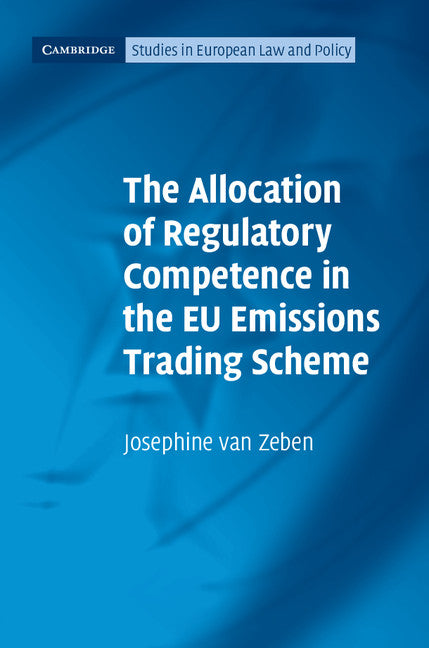Freshly Printed - allow 8 days lead
Couldn't load pickup availability
The Allocation of Regulatory Competence in the EU Emissions Trading Scheme
Analysis of the law and politics of regulatory competence allocation in the European Union Emissions Trading Scheme.
Josephine van Zeben (Author)
9781107042261, Cambridge University Press
Hardback, published 17 April 2014
280 pages, 11 b/w illus. 4 tables
23.5 x 15.5 x 2 cm, 0.52 kg
'This book is destined to stun lawyers with an interest in regulation as a means to solve problems, due to its extra-legal dimension and the wealth of insights the author thus provides … this book offers a precise analysis of the implications of competence allocation in an optimal and a real-life setting.' Andrea Keessen, Common Market Law Review
The European Union's Emissions Trading System (EU ETS) is the world's largest carbon trading market. This book offers a new perspective on the EU ETS as a multi-level governance regime, in which the regulatory process is composed of three distinct 'competences' - norm setting, implementation, and enforcement. Are these competences best combined in a single regulator at one level of government or would they be better allocated among a variety of regulators at different levels of government? The combined legal, economic, and political analysis in this book reveals that the actual allocation of competences within the EU ETS diverges from a hypothetical ideal allocation in important ways, and provides a political economy explanation for the existing allocation of norm setting, implementation and enforcement competences among various levels of European government.
Introduction: a changing (regulatory) climate
1. From competing jurisdictions to competing competences: the allocation of regulatory competences
2. Optimal competence allocation for the European Union Emissions Trading Scheme
3. Regulatory competence allocation in the EU ETS (2005–12)
4. Regulatory competence allocation in the EU ETS (2013 onwards)
5. A political economy explanation for competence allocation in the EU ETS
Epilogue.
Subject Areas: Environment law [LNKJ], Energy & natural resources law [LNCR], Law [L], Environmental economics [KCN]


